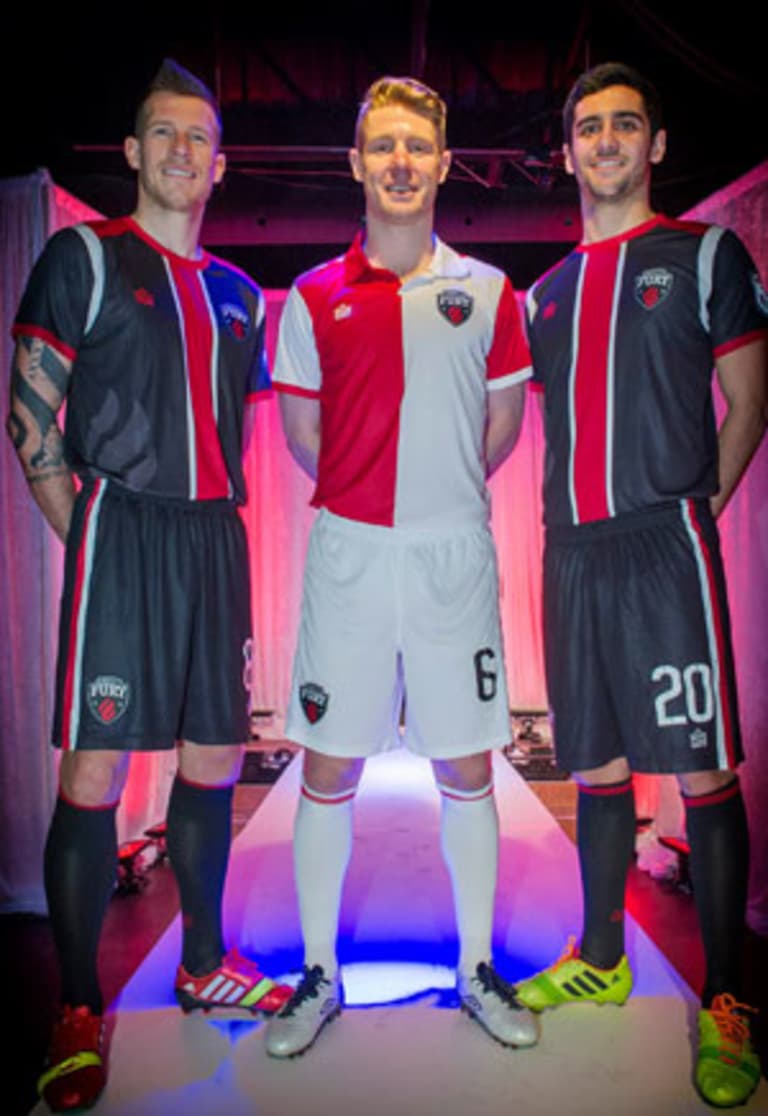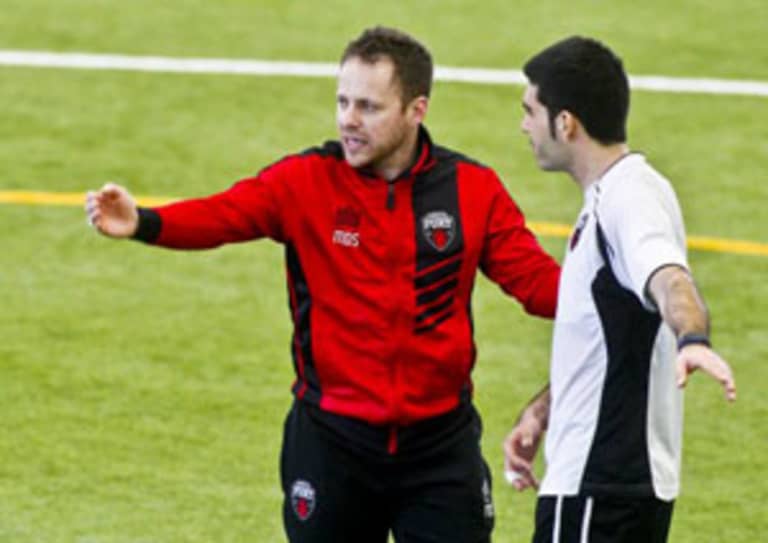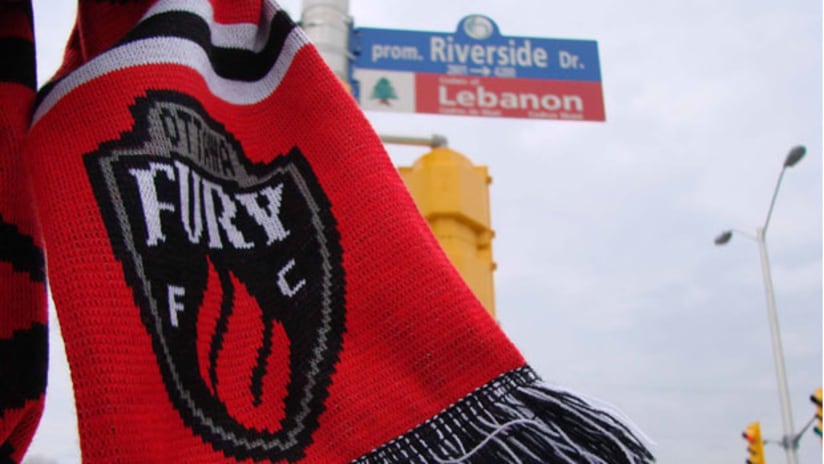During his career, Sergio Agüero has made a massive impact in every city where he’s played. Consider his early days in Buenos Aires, a spell in Madrid, his current stint in Manchester City and, of course, his legendary visit to Ottawa.
That’s right, Ottawa. The Argentine striker was the star of the 2007 FIFA U-20 World Cup, playing in front of sold-out crowds at Ottawa’s Frank Clair Stadium four times. And it was during that tournament that John Pugh – who already owned Ottawa-based teams in the USL Premier Development League and W-League – realized his city was ready for something more.
“People really began to understand what going to a real professional soccer game was like [during the U-20 World Cup],” Pugh tells MLSsoccer.com. “That would have been the ideal moment in time to start a professional club here in Ottawa. It’s taken longer than that, of course.
“We needed to build a stadium, and that’s taken quite a number of years and gone through a few trials and tribulations along the way.”
Around the same time, a group of local businessmen were angling to bring a Canadian Football League team back to Ottawa. But when cracks were found in Frank Clair Stadium shortly after the U-20 tournament ended, the businessmen – collectively known as the Ottawa Sports and Entertainment Group (OSEG) – realized they’d also need a stadium to bring their gridiron dreams to fruition.
Working with the city, they formulated a plan to redevelop all of Lansdowne Park – the site where Frank Clair sat – to include retail, residential and a new stadium fit for both football and fútbol.
“This is much more than a soccer destination,” says Pugh, one of the partners in OSEG. “It’s a 24-7 destination in terms of restaurants, shopping and all sorts of things. It’s a really exciting event for the whole city.”

The group was awarded its CFL team in 2008, and the NASL awarded Pugh a team in 2011. However, multiple lawsuits from local groups pushed back the opening of refurbished Frank Clair Stadium – since renamed TD Place Stadium – to July 2014.
But with a league and venue in place, Pugh’s team could get down to its next major task: establishing an identity. The club ultimately decided to hold onto the city’s recent soccer past.
“We’ve had W-League and PDL soccer here for many years under the old Fury Soccer Club banner, and built a foundation of academy and youth soccer programs,” he says.
So, in February 2013, after a public name-the-team contest, the city’s NASL team was unveiled as the Ottawa Fury FC. The next month, the team hired former Montreal Impact manager Marc Dos Santos as its first head coach.
On April 5, they officialy opened play in the NASL, and on Saturday, they'll play their home opener against Minnesota United FC.
“I really feel like the NASL is growing,” says Dos Santos, who managed Montreal from 2009-11, during the messy split between the USL and NASL. “Maybe there’s a lot more space for soccer in North America than people think. Maybe MLS is not going to be able to cover every zone and every area.”
Pugh, like Dos Santos, is bullish about the NASL’s prospects, citing the strong ownership groups as a key element of the league’s ongoing growth. But he is also excited about the fact that his club is yet another place where Canadian players – and coaches – have an opportunity to showcase their talents.
“We’re very pleased because two players have come through our youth ranks,” he says, referencing Kenny Caceros and Chad Bush. “Some players [that] have played for us in the PDL, like Carl Haworth and Drew Beckie, have now returned to Ottawa to play for our NASL squad.”
Dos Santos, whose roster includes 11 Canadian players, is unequivocal about where his club fits into the grand scheme.
“We want to be a club that supports the Canadian program and helps the national team,” he says. “If we want our national team to compete at the highest level and hopefully qualify for a World Cup and be competitive, we have to make sure our Canadian players are always around an environment where they’re going to play at the highest level they can.”

Dos Santos (at right) has some clear short-term goals in the team's first season of NASL play, but the Fury didn't quite get the the start they were after. The club lost its spring season opener 2-0 to the Fort Lauderdale Strikers on April 12.
“The first goal we have is to make sure that at the end of the season, we’re a respected club in North America,” Dos Santos says. “One of our dreams is to make it to the [NASL] final four; the other dream is to make the semifinal of the Amway [Canadian Championship].”
While Dos Santos and Pugh both have high hopes for the club’s performance on the field, they realize that its performance off the field in the coming years could be just as important. Ottawa has had a fraught sports history in the past 20 years, watching two CFL teams and three minor-league baseball teams cease operations during that time.
But Pugh, for one, feels soccer will be different.
“Rome wasn’t built in a day,” he says. “We expect to build that fanbase over time. It wasn’t too long ago that teams like Vancouver and Montreal were playing in front of crowds of 5,000-10,000 and they’ve moved successfully up.”
The Fury will also have a bit of a head start, with three established supporters' groups ready to bring their own character to home games. The oldest, the Bytown Boys, was established in 2011 to support Capital City FC, a defunct team in the now-outlawed Canadian Soccer League.
“The Fury welcomed us with open arms, so we attended PDL games and W-League games,” says Stephane Brisson-Merrick, 28, president of the group. “We knew they were going to NASL, so we figured we may as well get in on the ground floor.”
Brisson-Merrick says the group’s members have been actively recruiting people in the Ottawa soccer community to attend Fury games, and while it’s occasionally been a tough sell – particularly amongst diehard supporters of the European game – he hopes the team will show the sort of character that will appeal to all fans of the game.
“I want them to leave everything they have on the field, every game I want them to leave it on the field,” he says. “Make sure you work hard, because in the end, I think that’s what most sports fans love.”
Indeed, there’s been plenty of hard work involved in bringing a professional men’s team to the Canadian capital, but now that the season has begun it all finally seems real for those involved.
The home opener on Saturday at their temporary home at Carleton University is the next big step, but the big date in the minds of many is their NASL fall season home opener, July 20 against the New York Cosmos at their newly minted stadium.
“TD Place is going to be a wonderful place to watch soccer,” says Pugh.
They have built it – now the question is, will Ottawa soccer fans come?













